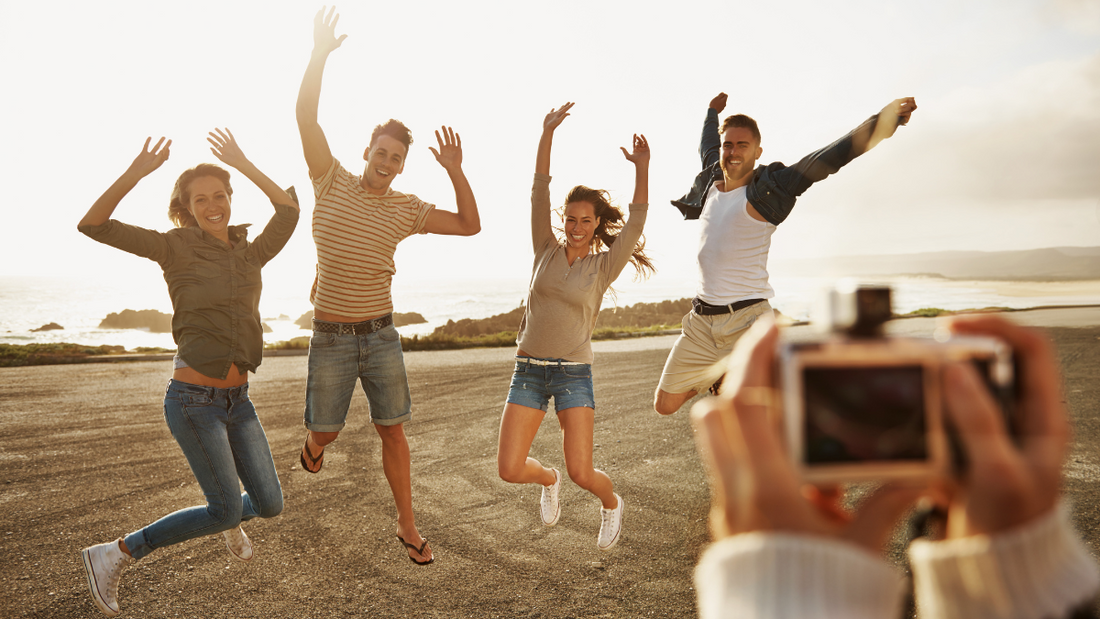Minimalist living is a lifestyle philosophy that has gained traction in recent years as individuals seek a way to escape the relentless pursuit of materialism and consumerism with shows like Get Organized with The Home Edit, Sort Your Life Out, Tidying Up with Marie Kondo, and others, aimed at helping people de-stress and sort their lives out. Minimalistic philosophy allows you to spend your money on purchases that matter to you, whilst sticking within your budget. Instead of buying half a dozen items or gadgets that you won't use and get lost in your drawer, for example, you can leave room for the items that matter – whether it's a laser device, an eyeshadow palette you've had your eye on, or that high-quality cashmere jumper that you'll love for years to come. At its core, minimalist living is about finding joy in less and focusing on what truly matters in life. It's a conscious decision to simplify one's life by decluttering, reducing possessions, and prioritising experiences over material things (or prioritising only the material things that matter to you). Let's talk about the joy of less.

Falling in love with what you have, being intentional
In a world inundated with constant advertisements urging us to buy the latest gadgets, fashion, and home decor, the minimalist lifestyle offers a refreshing alternative – and can sometimes align with the concept of hygge that we have written about recently. The idea is to strip away the excess, leaving only the essentials that bring genuine happiness and fulfilment. This isn't about depriving yourself but rather about being intentional with choices and embracing a more meaningful existence.
What things in your home do you truly love? Can you work with the existing clothes and items you have? Can you make choices to fall back in love with the things you already own instead of buying new ones? Can you think through your future purchases more intentionally?

Decluttering your space to see what matters
One of the key principles of minimalist living is decluttering. This process involves evaluating possessions and letting go of anything that doesn't serve a purpose or bring joy. It's a liberating experience that not only creates physical space but also provides mental clarity. Many minimalists swear by the "KonMari" method, developed by Marie Kondo, which encourages people to keep only those items that "spark joy."
By simplifying your surroundings, minimalists create an environment that fosters a sense of calm and tranquillity. A clutter-free space can have a profound impact on mental well-being, reducing stress and promoting a more mindful and present way of living. The focus shifts from constantly managing possessions to enjoying the space and freedom that comes with having less. Minimalism has at least fifteen science-backed reasons that it causes less stress in your life and more overall happiness.

However, you don't have to be an extreme minimalist to be happy with less. It's all about having clean, tidy spaces, with places for everything to go – and places where you can find things later. Having lots of items in your home creates "inventory management" problems. If you have hundreds of clothing items, then you have dozens of items to put away every laundry day. If you have hundreds of make-up items, you can't always remember what you have and use them regularly, as examples. (Maybe stylists and makeup artists can be excluded.) Personally, I prefer minimal spaces, but I need room for all my books!

Minimalism, curation, and wellbeing
Minimalism extends beyond physical possessions and encompasses various aspects of life, including relationships, work, and commitments. It encourages individuals to evaluate the activities and relationships that truly matter and let go of those that drain energy and time without adding value. This intentional approach to life allows minimalists to allocate their resources – both time and energy – towards pursuits that align with their values and contribute to their overall wellbeing.
In the pursuit of a minimalist lifestyle, consumerism takes a backseat, and experiences take centre stage. Rather than accumulating possessions, minimalists invest in experiences that create lasting memories. Whether it's travel, quality time with loved ones, or pursuing personal passions, minimalists find joy in the richness of life's experiences rather than the accumulation of material wealth. Plus, a more minimalistic philosophy aligns with having less environmental impact.

Financial freedom by cutting down
Financial freedom is another aspect that draws many to the minimalist lifestyle. By cutting unnecessary expenses and focusing on needs rather than wants, individuals can achieve a more sustainable and frugal way of living. This not only leads to reduced financial stress but also opens up opportunities for savings, investments, and pursuing endeavours that truly matter to them. For example, many educated consumers take their time to research products these days. You may find that if you cut down on purchases that ultimately don't make you happy, you have more money for purchases that will (maybe an Age-Defying Laser or a hair removal laser as examples – but, naturally, we are biased).

The takeaways
In a world where the constant pursuit of more can leave people feeling overwhelmed and unfulfilled, minimalist living offers a path to a simpler, more intentional, and more meaningful life. It's about finding joy in less, prioritising what truly matters, and discovering fulfilment in experiences and relationships rather than material possessions. Embracing minimalism is a journey towards a more deliberate and conscious existence, where the focus is on quality over quantity and the pursuit of a life well-lived.

For those of you trying to pursue some New Year's resolutions, check out one of our past posts about the psychology of New Year's resolutions and how to stick to them.
Why not tag us in your #minimalistliving stories @triabeautyuk on Tria Beauty UK's Facebook or Instagram?